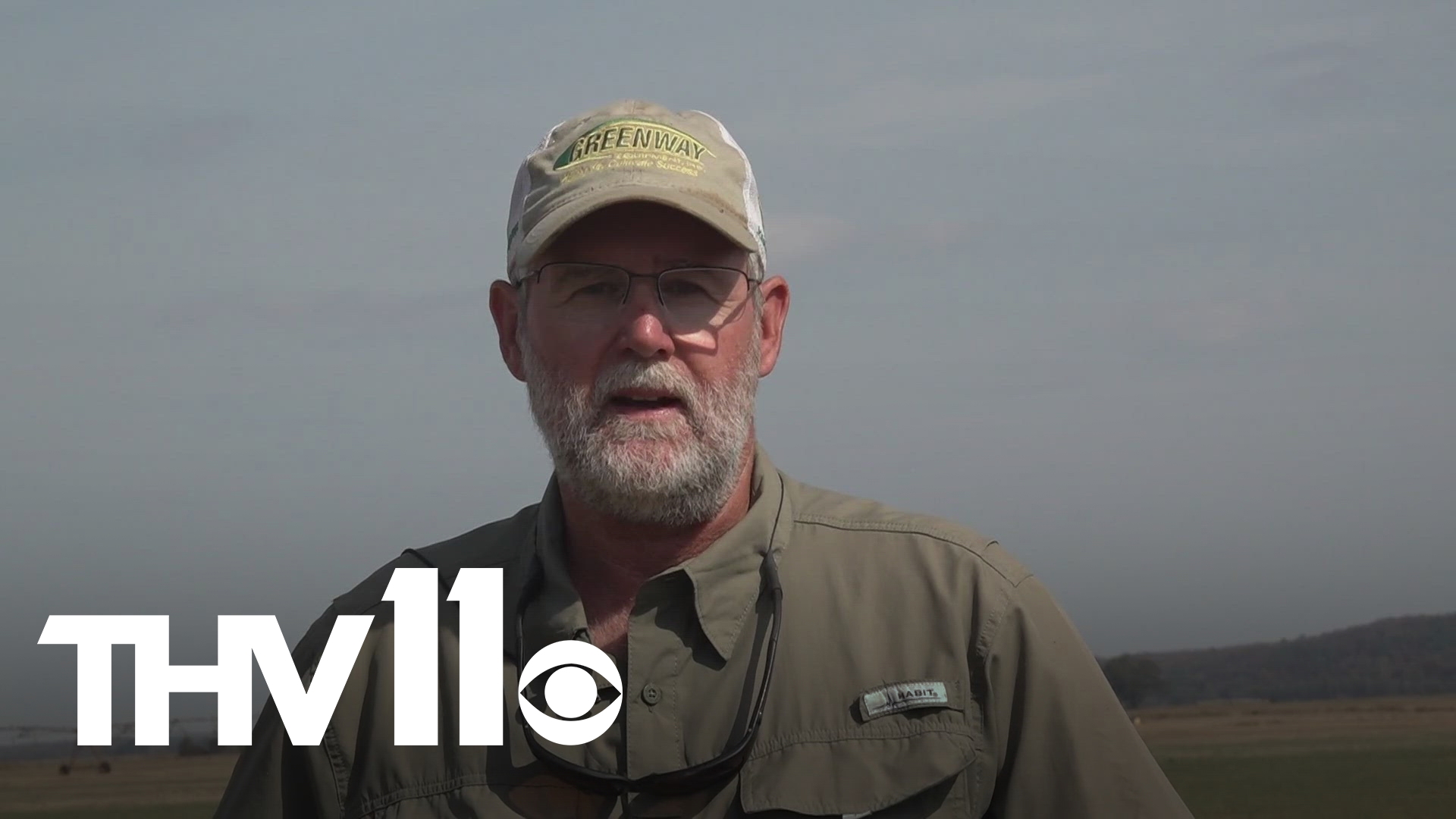MAYFLOWER, Ark. — For most of us here in Central Arkansas, the fall months have been quaint and nice but between dealing with burn bans and dry weather conditions, farmers and other agricultural officials have had some issues to deal with.
"Everyone knows it hasn't rained in a while," said Joe Thrash. "Our pastures are dry [and] our cattle are short on pasture."
About one week ago, the Arkansas Department of Agriculture posted on Facebook that the United States Department of Agriculture had designated Newton County as a primary natural disaster area.
Some counties in the Natural State haven't seen rainfall in over 40 days. Going so long without seeing any rain impacts the productivity level of farmers and ranchers as they prepare to head into the winter months.
"Our winter and fall forages are having issues. We're having a feed hay up front," explained Travis Payne, the Vice President of the Arkansas Cattleman Association. "I've only got one eligible pond right now that I had to move to cattle to so it can be quite a challenge."
While certain parts of the state are expected to get some much-needed rain this week, agriculture experts have explained that it's still not enough. The process of feeding cattle and other livestock will still be impacted.
"The moisture is really shallow right now and even with a pretty good rain it might only wet the ground so far and it is shallow up to here," Thrash described.
Taking these circumstances into account, farmers and ranchers have been left to make tough decisions. If it came down to getting rid of cattle, Thrash said it could possibly lead to getting rid of 25% of cattle inventory.
"They decide to sell, and the reason that they decide to is because they may have some that they want to hang on to but just financially can't because of the cost of of commodities or fee or whatever they're using the supplement for protein," Payne described.
Thrash said that the current weather is perfect to burn open fields for harvest.
However, AFD Fire Management Officer Wesley McKinney explained how if there's one wrong move, everything could get destroyed in the midst of the state-wide burn bans.
"With it dry and there's not water there to irrigate or put moisture back into there, and you get a wildfire that comes through, it could be devastating," McKinney added.
Here's a look at what farmers, ranchers and other agriculturalists advise to think ahead when it comes to dealing with droughts in efforts of settling the dust:
- How much hay do you have in reserves?
- Have you talked to local feed suppliers?
- What cattle do you want to part ways with (if any)?
Ultimately, there's one main factor that is needed to determine how farmers and ranchers will continue their day-to-day tasks.
"Rain is going to be really important through the winter to resupply all that sub moisture for next year," said Thrash.

